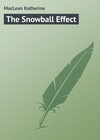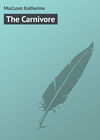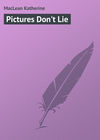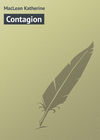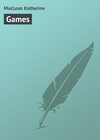Читать книгу: «The Man Who Staked the Stars», страница 5
VII
Behind the silver door a bell rang suddenly. A spaceship was approaching.
It was still early. They would see the globe alone and assume that Bryce had not yet arrived. The spaceship itself might be armed illegally, but those within would not blast the globe without checking its interior. Bryce glanced up at the silver door in the cliff and arranged his position so as to be lounging on one elbow, with his gun hand lying relaxed under a thin curtain of leaves. The magnomatic was pointing up towards the corridor door.
There were a few tall bushes between the base of the cliff and himself, but the silver central door was five feet up a flight of steps and in clear view.
Four flights of steps radiated away from the circular door to the hull, like spokes from an axle, all of them leading "down" to the inside surface of the globe. As he waited he heard the faint clang of magnetic soles hitting the metal of the airlock, and then the door chimes that announced that the airlock was being used. Someone was coming in.
He could follow their actions in his mind, timing them. Now they would be floating in the vestibule, facing a circular wall with a door, the wall spinning silently and rapidly, and the door in its center turning slowly end over end. The door marked the axis of rotation. There was a turning bar with handles running through the center of the airlock. They would float up to that and grip it to pick up spin, until the vestibule seemed to be rotating around them and only the circular wall and the central door seemed to be steady. Beyond it would be the corridor, and then the silver door.
The door in the cliff dilated silently. Two spacesuited men stood in it.
It was incredible that he had let them come in without seeing the door open. In the first split second he saw that neither of them was Orillo. In the second instant he saw that no weapons were visible, but that one stood slightly behind the other and his right arm was hidden.
They had happened to come to the entrance at an angle to his orientation, almost at right angles, and they would be confused for a moment, before they identified his shape, for to their orientation if they used Earth-thought for it, he would seem to be leaning head downward on an almost vertical slope. He took advantage of the lag to move his gun under its curtain of leaves and get the sights lined on them.
They swung their eyes around the circle and saw him. "Mister Carter?" asked the foremost one. Their faceplates were still closed, and their voices slightly distorted by transmission through the helmet speaker, but he could hear a note of surprise. As the first one spoke the second one moved his hidden arm slightly, as if he were holding something.
Bryce did not tighten his finger on the trigger. These could be mere innocent sight-seers. The position of his head, almost upside down relative to theirs, was probably confusing them, though almost certainly they had studied trimensional photographs of him. At any rate they probably were aware that they were standing like targets in the corridor doorway and would be in no mood to postpone action.
"Take off your helmets, gentlemen, make yourselves at home." It was a partial admission that he was the man they wanted, but not certain enough for a decision. He saw the shoulder-twitch that meant that the second one's hidden hand jerked in a moment of uncertainty, and he thought he saw something glitter under the first one's arm – the old trick of shooting from under a friend's screening arm…
"Mr. Bryce Carter?" the foremost one was asking again.
Bryce smiled. "No, Pierce," he said. He had turned on the two-way speaker and tuned it to the ship as he came in.
Immediately the voice came in the corridor behind them. "Stand still. You're covered."
There was no chance that anyone could genuinely be behind them, but the rear one whirled and snapped a startled shot into the darkened corridor, and the other leaped sidewise down from the doorway, drawing his gun with blurred speed, and leveling on Bryce as his feet left contact with the sill. He was falling slowly, almost floating, and it should have been an easy shot, except for something he had obviously forgotten, or he never would have leaped.
Bryce disregarded him as a danger, and threw three shots at the other, who still stood startled and off balance in the corridor, firing three with his inexperienced right hand to make sure of placing even one. The figure dropped out of sight in the corridor.
In the flick of time that Bryce's eyes had been away from the falling one, the path of the man's leap had begun to curve strangely, until now he seemed to be floating in a curve, flying sidewise and upward, faster and faster as he approached the hull. The rule of conservation of momentum was having its way. To the man's dizzied eyes, as he tried to keep Bryce within his sights long enough to fire, it must have seemed that the ground began inexplicably to turn and slide by, that suddenly the whole shell was turning around him like a big wheel, carrying his target up the wall and over his head.
He was almost to the sliding ground when a bush caught at his feet and yanked them from under him with a crackling of branches, and the bottom tread of a flight of stairs swung at his head like a gigantic club. Among the sudden splintering of branches and snapping of vines was a crunching thud which sounded final.
To anyone within a globe, it did not ordinarily appear to be spinning, the only sign it was, was the comfortable pseudo-gravity for anyone standing on hull level. But to those who approached the ground from the lighter G corridor, the stairs were necessary – stairs whose treads were oddly dipped in the middle in a shallow U. By bracing against one side of the U coming down, and on the other going up, one invisibly picked up enough speed to match the speed of the ground level. Jumping was the equivalent of jumping out of a moving car at forty feet a second, the sixteen feet a second, half of the corridor plus an extra thirty feet a second spin, the side slip speed of an eighteen foot drop where it had looked like five.
It was probably these added extra distances in the air, Bryce decided, that sometimes made the bird flights look so bewilderingly variable in speed and direction. He had not thought before how difficult it would be to plot a straight course from one side of the globe to the other.
He waited for a sign of motion, his magnomatic ready, looking up at the gunman lying overhead, forty feet away on the other side of the globe. The limp figure was unmoving, it looked badly tangled in vines, and its gun was gone. There was no need to shoot, but he wondered suddenly, if he had, what kind of a curve would the bullet have followed?
There was no sound from the other, but Bryce hesitated to climb the stairs and put his head above floor level of the corridor. A voice might give the other direction for a snap shot if that was what he was waiting for. Bryce chanced speaking.
"I've got this one, Pierce. How's the other?"
The televiewer in the entrance hall replied, "Lying on his back with his gun five feet away. You all right?"
"Yes." Bryce walked around the circumference of the globe and searched in the vines for the missing weapon of number one. The body in the spacesuit nearby was quite definitely a corpse. He saw the gun glittering a little further on and picked it up, wiping off leaf pulp on a clean patch of moss. It was a heavy duty police pacifier, a distance stunner, adjusted to a narrow beam.
He climbed to the corridor and collected the other weapon. It was a police pacifier too. They had not meant direct murder then, but only to stun him and deliver him to Orillo, C. O. D.
"How are you doing with their ship?" Bryce asked, "Is it armed?" Armament for spaceships was illegal, and careful official inspection made it rare.
"I didn't wait to see," Pierce's voice came apologetically after a pause in which some background noise sounding like a crash came over the televiewer speaker. "It started swinging around when I came in sight, so I just rammed it with that pretty ornamental nose spike. I'm backing off now with the forward braking jets."
"Then whoever's inside is probably either spacefrozen or cooked. Jockey that ship around on the spike and give her a four minute shove toward Earth, then push that button that collapses the ornamental vanes on the spike and let it pull loose when you start braking. I don't want any ship hulks floating around here."
"Aye-aye, Cap."
"Go slow on those braking jets when you pull loose. The back wash could touch your hull."
Pierce returned and came in to help Bryce drag the corpses through the airlock and into space.
They braced against the silver curve of the floating spaceship and gave the body a combined strong shove towards Earth. Spinning slowly end over end it dwindled into a dark speck against the glowing orb of Earth, destined to be a meteorite and make a small bright streak in the Earth sky several days later.
When the tubes conk out, the fuel runs down,
The cold creeps in to where I lie.
Pierce was reciting as they went back into the globe for the second corpse.
I'll take the meteor's trail – go home to Earth
And make a Viking's funeral in the sky.
"This is too easy," Bryce complained as they watched the second corpse fade from sight. "The trouble is, in space all corpses are delicti. It's an incentive. Launch your enemies."
"Gaucho country did all right under that system," Pierce said somberly, "and so did the American frontier." He floated motionless, a spacesuited figure turned toward the gray-green misted globe of Earth that shone against the black star-sprinkled sky as if he could have reached out and touched it. The sun caught the planet on its day hemisphere and reflected brilliantly from a shadowy blue glaze of water that was the Mediterranean, turning half of it to white fire.
Bryce's earphones picked up Pierce's voice again. "Frontier-born nations always look back and say that the first years were the best."
The words caught at something Bryce had felt before. He looked at Earth hanging splendidly in space. It was beautiful and he was fond of it, but – He said, "I don't think we'll ever go back." Nor would mankind itself. Never again – through all conquests from this point in time – would mankind go back down into the mesh of gravity to be a thin film over the surface of a planet.
"Give old Earth a smile, Bryce, we've hatched."
For a moment longer Bryce hung, watching Earth turning below. The management of UT was down there. He'd be damned if he'd let them get away with thinking they could tell him what to do, or tell the Belt where a line should be extended and a colony planted. The belt was his country, not theirs. Space belonged to the people who lived in it.
"No taxation without representation," Pierce said irrelevantly, as if he had been reading Bryce's thoughts. They jetted back to the ship and into the spacelock.
"Frontier country – " Bryce said as he stepped into the cubical of the revolving door. Gently tightening elastic bands drew him into position within the man-shaped mold. "What's a frontier on your terms, Roy?" When he was in place the other half of the rubbery, air-excluding mold closed on him and the airtight cylinder rotated, delivering him into the interior of the ship. He pushed the button impatiently to have it revolve back for Pierce, but it remained obstinately open, its servo refusing to close on a mold full of air and rotate air back for release into space.
Bryce remembered then. This was something he didn't have to bother with when he flew alone, for when going in or out he was always in the door when it rotated; it never turned empty. Beside the door on a hook hung an inflated pressure suit, complete with gloves, boots, and helmet. Except for the absence of any sign of a head or face inside the dark translucence of the helmet it looked like a full-sized man. Bryce reached it down and placed it in the mold, and watched grinning as the mold closed and the door rotated, delivering the man-form to an equivalent hook in the spacelock. The doll was known by all spacemen as Hector Dimwitty, and every ship had one or two. There were a thousand yarns and jokes circulating about the adventures of the Hectors, most of them lewd, and a few of them true.
Pierce's answer was in his earphones, "A frontier is where people go when they are young, broke, or have the cops after them."
"Right. Suppose I stake the broke, and loan them transport, and offer the fugitives unregistered safety to receive mail and to buy supplies?"
"You do that?" Pierce stepped out of the door and they took off their helmets.
"Yes, when I am my own man, not working for UT."
"If you do that, you bring in ten times as many of the broke who wanted to settle there, and – " Pierce took a long jump in understanding, saying softly, "They're dependent on you. Handcuffed to you and praying for your health and prosperity as long as you hold their loans and secrets, for with your death or bankruptcy, another man might come to your books to read the records of your loans, and demand payment, and give the secrets to the police or keep them for his blackmail. But to do it is to take a risk of murder or arrest, and a high cost in hard work and money. Why do you want to do this? What payment do you take?"
"They pay by being my men, grateful and ready to back me up when I want help later. They don't have to be grateful, for they know I can call any loan if the owner crosses me, and I've built a reputation for an occasional fit of irrational temper that is threat enough for anyone to avoid crossing me, without feeling that I have wanted to threaten or force them. As for the fugitives they pay enough by wanting the Belt to be organized as a nation independent of Earth, so that the hand of the law can't stretch out and drag them back, and they can become wealthy in open business, in the million chances for wealth that lie around them in the Belt. They don't know that they want this yet, but they will see it when it is told to them. I can't do any of this now – it's suspended for as long as I am part of UT and have to drag the dead weight of ten Earth-tied conservatives with me in every decision."
VIII
He stopped to set in the coordinates of the Moon for the robot pilot, but he found himself still wanting to talk. "Man has reached space – do you think he'll ever go back to the ground? In space he has gravity only when he wants it, and any weight of gravity he likes, depending on how fast he spins his house. And no gravity when he wants that. You see what that means to engineers in the advantage of building things? No weight in transportation, no weight in travel, limitless speed and almost no cost as long as he stays away from planet pulls. His house is in the sky, and when he steps out of it he can fly like a bird. And food. To grow food there is sunlight Earth never dreamed of. For heat and power there is sunlight to focus. Space is flooded with heat, irradiated with power —
"It's not child's play taming it, and those on the ground don't see it yet. But the next step of mankind is out into space, and it's never coming back."
Pierce, sitting in one of the shock tank armchairs, asked, "What part do you have in this?"
Bryce looked at him with a feeling almost of surprise, as if he had been called back from a long distance. "Me?" he laughed, a little awed by the immensity of the goal, and the ease of it… "First President of the Belt and political boss for life. That's enough."
Enough to hold the solar system in the palm of his hand, if he chose. He who rules space, rules the planets. It was the first time he had ever mentioned his goal to anyone.
Roy Pierce asked, "What do I do about this 'friend' of yours who lays traps?"
The last attack had settled the question of who was behind the other attacks, and who had told Beldman, but Orillo would still be a useful pawn. All that was necessary was to evade his attempts at murder for a month or so until partnership tied them too close for murder.
Bryce explained some of that to Pierce, setting up a chess board to pass away the time until they arrived back at Moonbase City.
"What's my next assignment?" Pierce asked, when they were several moves into the game.
Bryce recalled a danger he had made no move to guard against. "The Board hired a psychologist, a mind hunter, to find out who's doing the undermining. He's one of the Manoba group. Remember the name, look it up and find out what their methods are, how to recognize them, and report back what to do about it."
"I'll take care of him," Roy Pierce said absently, moving his knight to threaten Bryce's bishop.
"No unnecessary trouble. Remember I have to keep my name clean." Bryce moved a pawn one step to cover the bishop and leave room for his other bishop to menace the knight.
"I'll be careful. There'll be no publicity. He won't get hurt," Pierce said, moving the knight into Bryce's second line where it threatened the king and a cornered castle. "Check." And he added, as if apologizing for having delayed his move, "I don't like to move until I'm sure what's going on."
The remark didn't seem to be suited to the game, as if he had referred to something else.
It was during dinner on the Moon that he and Pierce loosened up for the first time since the ambush. Pierce had been comparatively silent since the chess game on the trip back and Bryce too, whether in sympathy with him or in a naturally parallel mood, had little to say. But now the tension had diffused and, with the stimulus of aromatic food, they climbed out of their depression of emotional solemnity.
The decorations of the dining room were lush. While they ate, the materialism of their lives was reinforced. From silvered-and-tapestried wall to wall there was life here, low-keyed with excitement in the blend of subdued talk and the shifting artistry of lights and music. Their table was almost in the center of the islands of tables and potted trees, and around them were the diners, their voices washing up at them both, inviting them with gentle tugs to surrender their resistance, beckoning them into the sea of simple pleasures.
"We owe ourselves some fun, Bryce."
At Pierce's words, Bryce sharpened his eyes on the face across the table. There was a touch of seriousness in those words; more like a statement than a suggestion.
Pierce smiled wryly and took a vial out of his pocket and poured it into his drink. He spun the empty bottle between thumb and fingers.
"We owe ourselves some fun," Pierce repeated. "We've nothing on the fire tonight, nothing to do that's crucial. It's a good night to experiment."
The warm voice waves lapping at Bryce's mind suddenly receded and left a chill. With instinctive wariness he thought of hypnotics and single-shot addictors.
Pierce couldn't have missed the emotionless freeze on the other's face. Still twirling the vial casually, he began to explain. It was a new drug, he said, found being used by a tribe in Central Africa. "I've heard of it for some time and what you mentioned a little while back reminded me of it."
Bryce caught the hidden reference. Central Africa – and the Manoba group. So Pierce had not dismissed the mind hunter from his thoughts as a problem to be easily dealt with.
"It's still in the testing stage," Pierce added. "But some of it is circulating among medical students. The tests have interesting effects. And, as I say, tonight's a good night to experiment, it's called B'nyab i'io."
The chill in Bryce's head and spine was thawing out. "You're not conning me?" He said it with a grin, but there was an edge to the question which demanded an answer.
Pierce gave it to him, for a brief moment deadly serious. "You couldn't get addicted if you swam in it."
Bryce believed him. He stared at the glass. "What does it do to the I.Q.? We've got to collect some information here and there this evening. I want to be able to read and talk." He smiled crookedly. "No worse than usual, that is."
"Either raises the I.Q. or leaves it alone."
"What's the effect?"
"It affects different people different ways. After hearing the reports I'd like to see how it hits us." Pierce pushed it towards him, grinning. "Leave half for me."
Bryce's wary thoughts touched poison and immunity and murder, but inwardly he began to scoff at his own habits of suspicion. However, before he could reach for the glass, Pierce had given a short snort as though in recognition of his presumptuousness and drank his own share first.
Then Bryce raised the cold glass to his lips.
As he put it down he could feel the change beginning to spread through his blood, warming and relaxing, bringing closer the memories of pleasure and good times. The restaurant was now completely seductive, with the surf of voices pleasant in his ears, calling to him to join the world and its offers of uncomplicated pleasures. He felt himself blending with the ethereal background mixture of light and sound.
"I like this," he decided.
"We should take notes." Pierce was smiling as he stuffed the empty vial back in his pocket.
The next day Bryce looked back on that evening with pleasure. Everyone had been remarkably pleasant, friendly and considerate, and Pierce had always had the right friendly word and gesture to reward them, speaking for Bryce, knowing his way around the cities of the Moon to the right places for the information they sought, always speaking for Bryce Carter, his employer, getting him the things he wanted, giving the orders he wanted to give before Bryce had even fully realized that he wanted them. Bryce had needed to say nothing the whole time except "Right. That's it," and everything went as he wanted it.
"A perfect left hand man," he smiled, stretching, and turned the polarization dial to let in the sunlight.
The telephone rang. He picked it up and the desk clerk said in a deferentially hushed voice, "Eight o'clock, Mister Carter."
For some reason the hushed voice struck him as funny. "Thanks, I'm up." He hung up and stretched again. It was soothing to have someone solicitous that he arose on time, if only a hotel. The hotel had given him a lot of good service. He felt suddenly grateful for all the pleasures and luxuries and small services they surrounded him with. It was a good place. He was feeling good that morning. Maybe because the sun was so bright…
He liked the look of the people passing in the lobby as Pierce joined him, and he liked the look of the passengers in the tube trains on the way to the office. They all looked more friendly. And as he pushed through the second glass door into his offices he liked the clean shine of the glass and the rich blended colors and soft rugs and gray textured desks and the soft efficient hum of work in progress.
Bryce usually passed Kesby's office with a businesslike nod, but Pierce smiled in, stopping for an instant with Bryce. "Good morning, Kesby. We're glad to see you." It was true enough and expressed what he felt.
Bryce exchanged a grin with Kesby at the boy's insolence and then went on into his office.
It was a good day.
It was a good day for what he had to do.
In the luxury of his inner office he sank into the deepest, softest chair, letting his cousin-from-Montehedo sort the mail, agreeing with the boy's suggestions for action or sometimes issuing his own instructions, keeping only half his mind on the routine day's business, relying on Pierce, and concentrating the other half on the deed to be done. The plan was set in his mind but he had changes to make.
He was barely conscious of the time slipping by as he lay, rarely moving, in his chair, while Pierce worked at top speed.
By one o'clock the deck was cleared for action.
Bryce stood up, stretched, and checked his watch again. It was 1304 hours. A telephone call was scheduled in about another hour, and five more successively about a half hour apart.
"Order us some lunch, Pierce, before I lift the drawbridge."
The food came in as he was instructing his staff to leave them undisturbed for the rest of the afternoon.
By the time they had finished eating, their isolation was complete. The office was a command post now, with only the slender, unattended telephone wires connecting them with the outside worlds.
Bryce moved over behind his desk. He drew the telephone toward him and dialed a number. Somewhere, in the locked safe, the phone rang.
From the case he took a toy dial phone. Pierce's eyes were on it, his eyebrows lifted quizzically, but Bryce offered no explanation. The boy was due for a series of surprises. And when it was over, he would know everything without any explanations, and too late to interfere.
"Hi Al," Bryce said to the recorded "Yeah?" at the other end. He dialed a number on the toy dial, the one receiver against the other's back. After the usual ritual, Bryce said, "Hello George, how's everything going?"
This is it, Bryce thought. This was the first part of the final blow to UT. And the only instrument he needed in his delightfully simple method was a telephone. Originally he had planned six brief warning calls to the six key numbers of the ground organization. He would tell them to refuse to take anything from the hands of the UT branch, and break contact with them immediately after accepting cash for miscellaneous items. That would set the stage.
The police trap would close on all members of the UT branch of the organization while they were encumbered with a maximum of incriminating objects to dispose of in too little time. Then would come his anonymous tip to the police. He'd inform them that certain employees of UT in a few listed cities would be found to be smuggling in large quantities of drugs. The thing would be so simple. And the whole works would blow up with the efficiency of the calculated explosion of nuclear reaction.
That had been his original plan.
But things would be different now. The morning in the easy chair had changed his approach. The newer, more elaborate program, still remarkably simple, would bring down the whole structure within UT without the help of the police, but by himself alone, planning it, initiating it, executing it with no one's help. Not even Pierce's.
He heard himself saying:
"This is 'Hello George.' Listen to me and don't interrupt.
"Somebody has talked. I've been betrayed myself. Get that? Hello George is washed up. Right now the cops are tapping this line. It doesn't make any difference to me, now. But it does to you. This is an open warning from Hello George to you. Spread the word. I'll keep making calls until they break in on me and cut this line.












